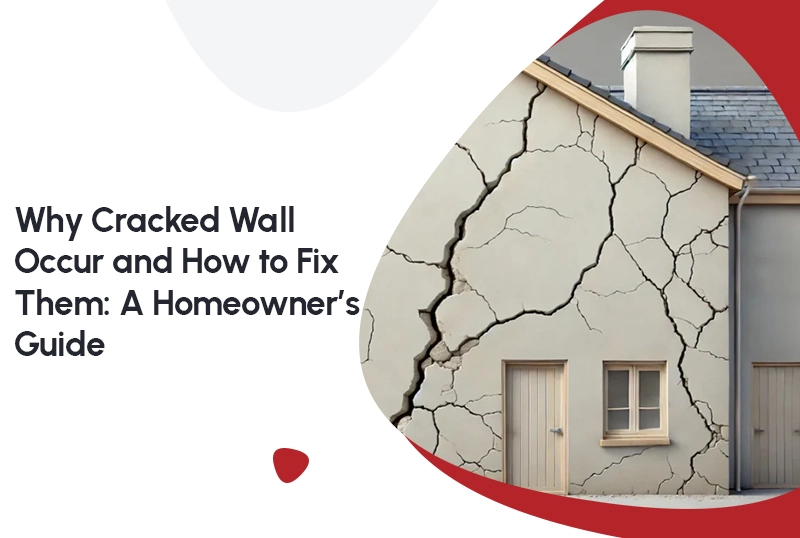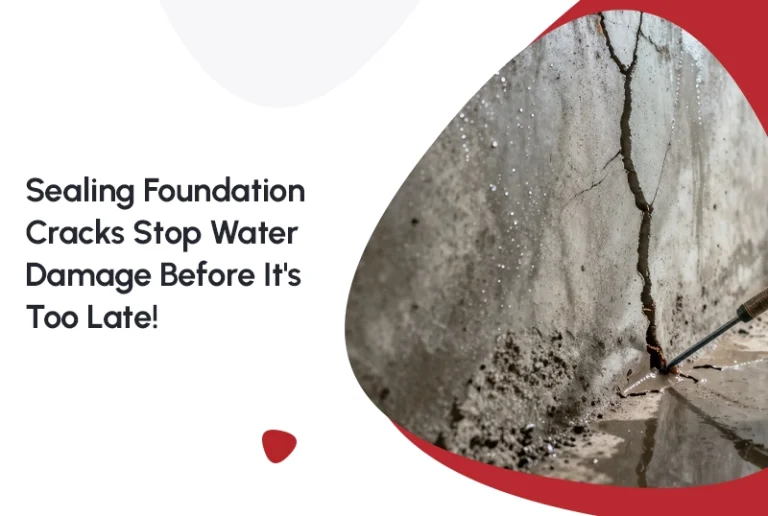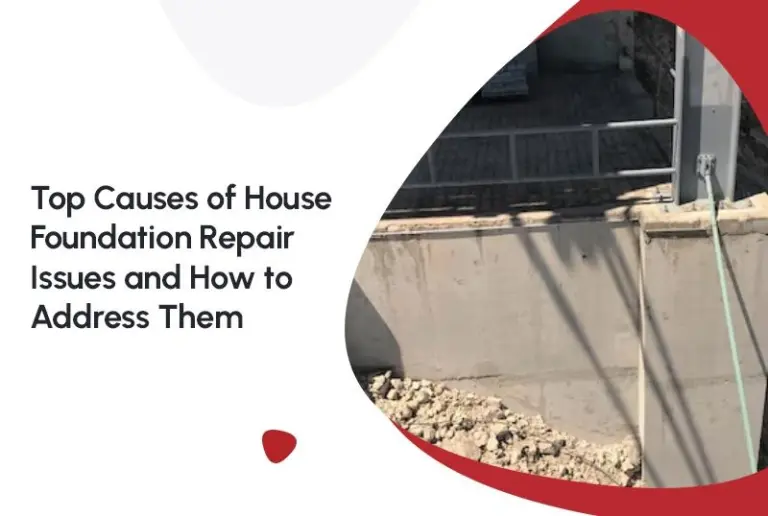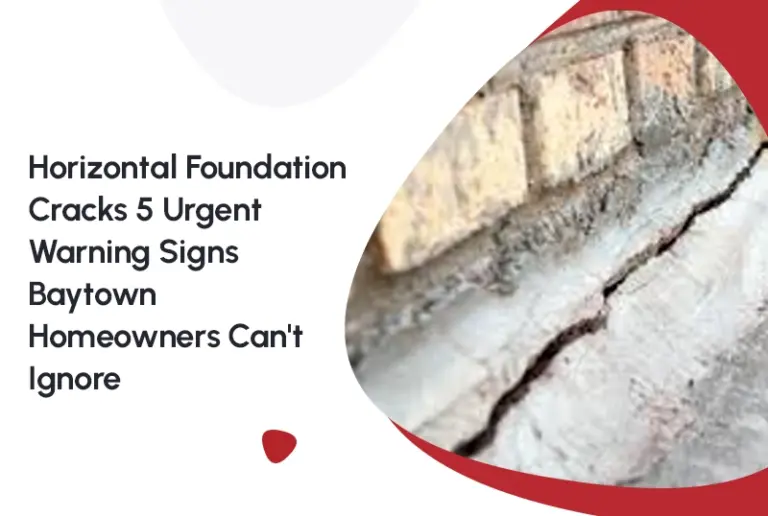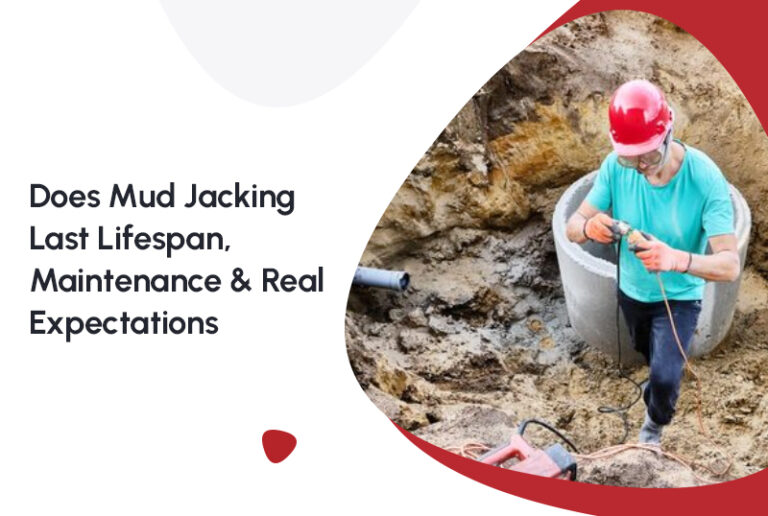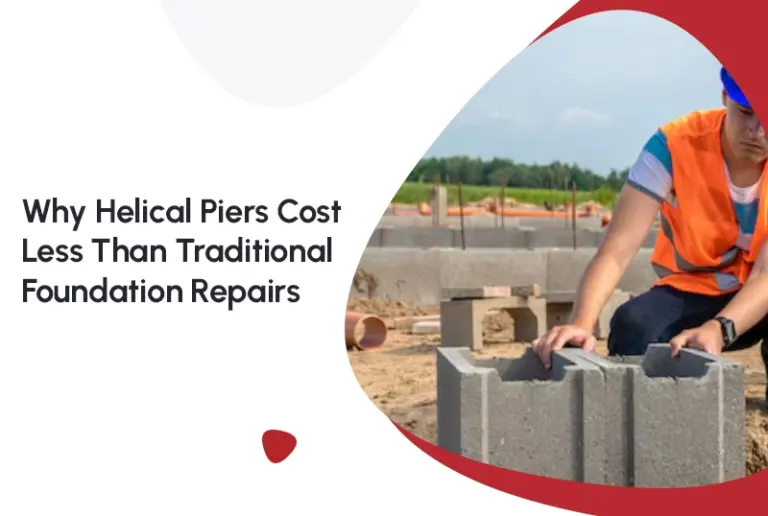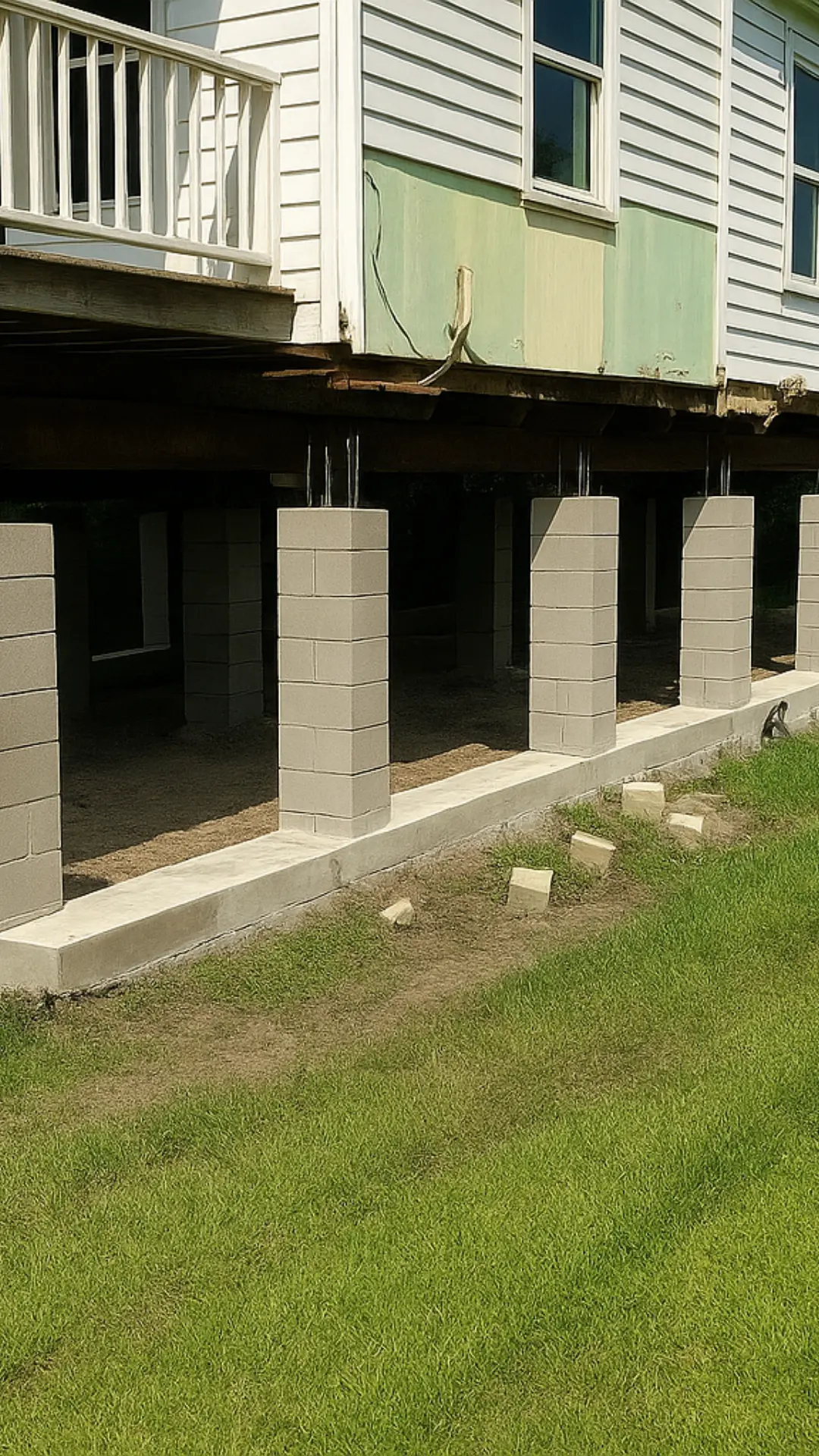Cracked walls are one of the most common structural issues that homeowners face. While small, hairline cracks are typically nothing to worry about, larger, more noticeable cracks can be a sign of underlying problems that require prompt attention. As a homeowner, understanding why cracked walls occur and how to fix them can save you time, money, and potential headaches. In this guide, we’ll explore the causes of cracked walls, the importance of addressing these issues early, and how foundation repair can prevent further damage.
Why Do Cracked Walls Occur?
Cracked walls can be caused by several factors, many of which are related to the foundation or structural integrity of your home. Let’s dive into the common causes of cracked walls and why they might be happening in your home.
1. Foundation Issues
One of the primary reasons for cracked walls is a compromised foundation. Over time, the foundation of a house can shift, settle, or become unstable. When this happens, the walls of the house are affected, causing cracks. A cement foundation is particularly vulnerable to soil movement, moisture changes, and poor construction, all of which can lead to foundation settling. This settling can cause the walls to crack as the house shifts out of alignment.
2. House Leveling Problems
Over time, a house that has not been properly leveled may begin to shift. This can cause the walls to lean or tilt, leading to cracks. This issue is more common in homes with pier & beam foundation repair that are not regularly maintained or leveled as needed. Uneven leveling is especially prevalent in areas with expansive soils that swell and shrink with moisture changes.
3. Moisture and Water Damage
Moisture can also play a significant role in the development of cracked walls. When water infiltrates the walls or foundation, it can weaken the materials, causing the structure to expand and contract. This movement can result in cracks in the walls. Moisture is often the result of poor drainage around the foundation or plumbing leaks that go unnoticed.
4. Natural Settling of the Home
All homes settle over time, and this is a natural process. However, if the settling is uneven, it can lead to cracks in the walls. This is especially common in newly constructed homes or homes that have not been properly leveled or stabilized. Over time, even minor settling can cause significant issues with wall cracks, especially if the house is not inspected and maintained regularly.
5. Structural Movement Due to Weather Changes
Extreme temperature fluctuations can cause materials in the walls and foundation to expand and contract, leading to cracks. When the ground beneath the home expands or shrinks due to changes in moisture levels or temperature, the home’s foundation may shift. This movement puts pressure on the walls, resulting in cracks. In areas with highly variable climates, this is a common issue.
How to Fix Cracked Walls
Now that we understand the causes of cracked walls, it’s time to look at how to fix them. There are several approaches to repairing cracked walls, depending on the cause and severity of the cracks.
1. Foundation Repair
If the cracked walls are due to foundation issues, repairing the foundation should be the first step. This could involve stabilizing the foundation with foundation repair methods such as underpinning, which involves adding piers to stabilize the foundation. In cases of cement foundation damage, professionals may recommend concrete piling or slab jacking to level the foundation and prevent further movement.
It’s crucial to address the underlying foundation problem before attempting to fix the cracks in the walls. If the foundation is not properly repaired, the cracks will reappear after the walls are patched.
2. House Leveling
If the cracks are a result of uneven settling or poor leveling, the next step is house leveling. This process involves lifting the home back to its original position using hydraulic jacks or a similar leveling system. Once the house is properly leveled, any wall cracks caused by uneven settling can be repaired. It’s important to consult a professional who can accurately assess the home’s level and make the necessary adjustments to restore stability.
3. Crack Repair
Once the foundation and leveling issues are addressed, you can proceed with repairing the cracks in the walls. Small cracks can be filled using a wall patching compound or caulk. For larger cracks, you may need to remove damaged drywall or plaster and replace it with new material. In severe cases, structural repairs might be necessary to restore the wall’s integrity.
4. Addressing Moisture Issues
If moisture is the cause of the cracked walls, it’s essential to address the source of the water. This could involve fixing plumbing leaks, improving drainage around the foundation, or waterproofing the walls. Once the moisture source is addressed, any water damage to the walls can be repaired. Applying a waterproof sealant to the walls and foundation can help prevent future moisture problems.
5. Professional Help
In many cases, cracked walls can be a sign of more serious foundation issues that require professional attention. It’s essential to consult a foundation repair expert to assess the situation and recommend the best course of action. A professional can ensure that the root cause of the cracks is addressed and that the repairs are done correctly.
Conclusion
Cracked walls are a common problem for homeowners, but they don’t have to be a major cause for concern if addressed promptly. By understanding the causes of cracked walls, including foundation issues, house leveling problems, and moisture damage, you can take the necessary steps to fix them before they cause further damage to your home. Proper house leveling is important to ensuring the long-term stability of your home, and addressing these issues early can save you money in the long run.
If you notice cracks in your walls, it’s important to act quickly to prevent them from worsening. Consult with a professional foundation repair expert to get to the root cause of the issue and restore the structural integrity of your home.
FAQs
1. What causes cracks in walls?
Cracks in walls can be caused by foundation issues, poor house leveling, moisture, or natural settling. Weather changes and soil movement can also contribute to cracking.
2. Can I fix cracked walls myself?
Minor cracks can be repaired with DIY patching materials. However, if the cracks are caused by foundation issues, it’s essential to hire a professional to ensure that the underlying problem is addressed.
3. How do I know if my cracks are caused by foundation problems?
Large or uneven cracks, particularly those that run vertically or diagonally across the walls, are often signs of foundation issues. If the cracks are accompanied by doors or windows that won’t close properly, this is a strong indication that the foundation needs attention.
4. How long does house leveling take?
The duration of house leveling depends on the size of the home and the extent of the settling. On average, the process can take anywhere from one to three days.
